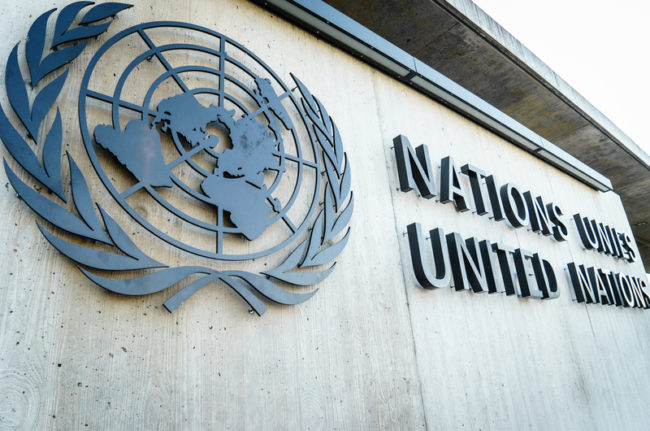
Even as stormy Trump ravishes America, real hurricanes are multiplying so quickly that the usual list of names is reaching exhaustion and the Greek alphabet will be used for only the second time on record.
This delicious morsel comes from the World Meteorological Organization (WMO), a United Nations agency specializing in almost everything involving weather, climate and water resources. Its Hurricane Committee awards names for tropical cyclones.
“As predicted by the US National Oceanic and Atmospheric Administration, the 2020 hurricane season has seen an exceptionally high number of named storms, reaching the letter T (Teddy) as of Monday 14 September. The season lasts until 30 November,” a WMO statement said.
While Donald Trump batters almost every slice of the US, Hurricane Sally downgraded to a tropical storm battered Alabama and Florida today. Reportedly, historic and catastrophic flooding caused by intense rains has occurred and a section of the Pensacola Bay Bridge collapsed, while downtown Pensacola was largely underwater.
Fortunately, Trump is not yet the name of a real hurricane. That list has reached Teddy and Vicky while Wilfred awaits. Then, Greek alphabet will take over.
The use of the Greek alphabet (Alpha, Beta, Gamma, Delta, Epsilon, Zeta, Eta, Theta, etc.) has only happened once before in 2005, when six names from it were used. That was a record-breaking year with devastating hurricanes including Katrina, Rita and Wilma.
On September 14, the US National Hurricane Center was issuing advisories on five tropical cyclones over the Atlantic basin. This ties with a September 1971 record for the greatest number of tropical cyclones in that basin at one time.
WMO maintains rotating lists of names in alphabetical order for tropical cyclones. Male and female names are alternated, and the lists are used every six years. If a hurricane is particularly devastating or deadly, its name will be retired and a new one selected by WMO’s Hurricane Committee.
The hurricane name lists include only 21 letters out of 26, because it is not easy to find 6 appropriate names starting with Q, U, X, Y and Z. Only the name Wilfred remains unused.
In the interests of safety, names have to be easily recognizable and reflect a balance between French, Spanish, Dutch and English names due to the geographical coverage of the storms throughout the Atlantic and Caribbean regions.
On September 14, the US National Hurricane Center was issuing advisories on five tropical cyclones over the Atlantic basin. This ties the record for the greatest number of tropical cyclones in that basin at one time, last set in September 1971.
They were:
• Hurricane Paulette, which on September 14 had its entire eye over Bermuda, and is now expected to weaken
• Tropical depression Rene, which has since dissipated,
• Hurricane Sally, centered over the north-central Gulf of Mexico, which is described as a dangerous hurricane forecast to landfall, with life-threatening storm surge, hurricane-force winds and flash flooding likely along portions of the Northern Gulf Coast later today.
• Tropical Storm Teddy, over the east central tropical Atlantic and is expected to become a hurricane on Tuesday
• Tropical Storm Vicky.
An area of low pressure has formed near Cabo Verde and this has a 50% chance of tropical cyclone formation in the next 48 hours, according to the National Hurricane Center. That would be Wilfred.
The WMO Hurricane Committee retires into hurricane history the name of a tropical cyclone if it acquires special notoriety because of the human casualties and damage inflicted.
















